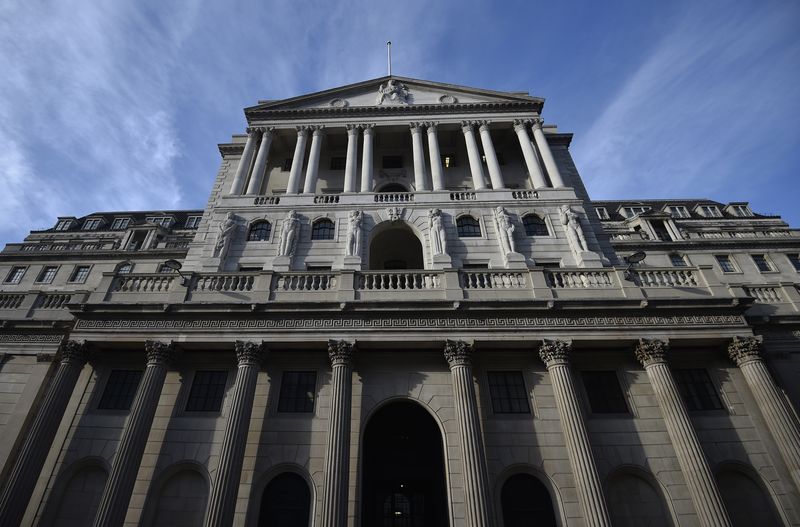By David Milliken
LONDON (Reuters) - British businesses' expectations for inflation over the next 12 months have risen to their highest in more than five years, according to a Bank of England survey that is likely to boost official concerns that soaring inflation may be slow to fall.
Businesses surveyed from Feb. 4-18 expect inflation in a year's time to be 5.0%, up from 4.3% in January's survey and matching December's reading, which was the highest since the series started in January 2017.
Looking at the three-month average for the survey, the BoE's preferred measure, expected inflation rose to 4.8%, the highest on record.
Consumer price inflation was 5.5% in December and last month, before Russia's invasion of Ukraine sent energy prices even higher, the BoE forecast it would peak at around 7.25% in April before returning to its 2% target over the next two years.
Many policymakers look at surveys of inflation expectations to get a sense of how persistent inflation is likely to be after the initial shocks driving up prices - in this case, higher energy prices and supply-chain difficulties - begin to fade.
Inflation expectations have been rising across a range of measures.
Two other surveys released on Thursday - an IHS Markit purchasing managers' index and a Confederation of British Industry poll - showed inflation pressures in the services sector were the highest since at least 1996 and 1998 respectively.
Households' long-term inflation expectations last month were the highest since 2011, and a measure of financial markets' expectations for five to 10 years ahead closed at its highest since at least 2013 on Wednesday.
The BoE has raised interest rates twice since December and financial markets expect it to raise rates again on March 17, returning Bank Rate to its pre-pandemic level of 0.75%.

Monetary Policy Committee member Catherine Mann highlighted high price and wage expectations in the BoE's last Decision Maker Panel survey as a reason why she wanted to "front-load" tightening, and return rates to 0.75% in February.
But others have also noted that surging energy prices will sap consumer spending power, limiting businesses' ability to pass on higher costs over the medium term.